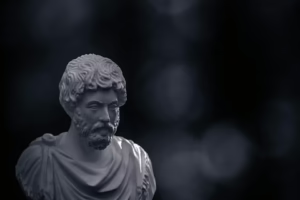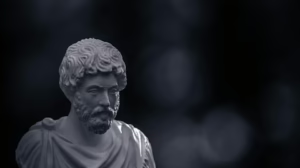Pondering on Paper: How 5 Philosophy Books Changed My Perspective
Philosophy has a unique way of shaping our understanding of the world and ourselves. It challenges our assumptions, inspires deep contemplation, and encourages us to question our beliefs. Over the years, I’ve found that a handful of philosophy books-whether through their dense arguments or poetic insights-have significantly shifted my perspective on life. In this article, I’ll share five of these transformative works and explore how they changed my thinking.
1. Meditations by Marcus Aurelius
“Meditations” is one of the most profound works ever written, offering insight into Stoic philosophy. Aurelius, a Roman Emperor, penned his thoughts as a source of personal reflection, resulting in timeless wisdom about resilience, virtue, and self-understanding.
Key Insights
One of the book’s central themes is the importance of accepting things as they are. Aurelius argues that we are often troubled not by events themselves but by our perceptions of them. This shifted my perspective on adversity; instead of viewing challenges as insurmountable hurdles, I began to see them as opportunities for growth.
Aurelius also emphasizes the interconnectedness of humanity, encouraging readers to recognize the shared experience of existence. This principle has encouraged me to cultivate empathy and patience in my interactions with others, reinforcing the idea that we’re all navigating our struggles.
Practical Application
When faced with difficulties, I’ve started to practice “negative visualization,” a Stoic technique. By contemplating the worst-case scenario, I’ve learned to appreciate the present and reduced my anxiety about potential losses. This has transformed my approach to challenges, allowing me to respond with equanimity rather than fear.
2. Being and Time by Martin Heidegger
Heidegger’s “Being and Time” is a dense but impactful exploration of existence. It pushes readers to consider the nature of being and our place in the world. While the text can be challenging, it offers profound insights into authenticity and the experience of being.
Key Insights
One of Heidegger’s key ideas is “being-towards-death.” He suggests that an awareness of our mortality compels us to live authentically and fully. This realization shifted my perspective on life, prompting me to focus on what truly matters instead of becoming mired in trivial distractions.
Heidegger also discusses the significance of “thrownness”—the idea that we are thrown into a world not of our choosing. This notion helped me appreciate the circumstances of others and recognize the diversity of human experiences.
Practical Application
Acknowledging my own mortality has been liberating. It has urged me to prioritize meaningful experiences and deepen my relationships, as I have come to understand that time is finite. Engaging in activities that align with my values has become essential, and I often ask myself if my actions reflect my authentic self.
3. The Republic by Plato
Plato’s “The Republic” explores justice, governance, and the nature of an ideal society. While it’s a work of political philosophy, it also delves into the human psyche and the pursuit of a good life.
Key Insights
One transformative idea from “The Republic” is the Allegory of the Cave. This allegory illustrates the difference between the perceived reality and the greater truths that lie beyond our immediate experience. It resonated deeply with me, underscoring the importance of critical thinking and questioning commonly accepted beliefs.
Plato also discusses the concept of the philosopher-king, emphasizing that true leaders must be wise and just. This idea has led me to reflect on the importance of ethics and wisdom in leadership, both in my personal life and in observing societal structures.
Practical Application
The allegory encouraged me to seek knowledge and challenge my assumptions actively. I’ve become more inquisitive, striving to engage in discussions that broaden my understanding. Participating in book clubs and philosophical discussions have enriched my perspective, enabling me to approach complex issues with a more open mind.
4. Nicomachean Ethics by Aristotle
Aristotle’s “Nicomachean Ethics” examines the concept of virtue and the path to a flourishing life. Unlike other philosophical works that might focus on abstract theories, Aristotle’s approach is pragmatic, rooted in human experiences and actions.
Key Insights
Aristotle’s idea of the “Golden Mean”—the balance between excess and deficiency in behavior—has been one of the most practical lessons I’ve learned. It highlighted the importance of moderation in various aspects of life, from personal habits to emotional responses.
Furthermore, Aristotle’s assertion that “happiness is the ultimate goal” reshaped my understanding of success. Rather than pursuing wealth or status, I began to prioritize fulfillment and well-being, shifting the metrics by which I measure my achievements.
Practical Application
Applying the principle of the Golden Mean has helped me cultivate balanced habits. In my pursuit of fitness, for example, I learned to avoid extreme diets and instead focus on a sustainable approach to health that incorporates enjoyment and well-being.
5. The Ethics of Ambiguity by Simone de Beauvoir
In “The Ethics of Ambiguity,” Beauvoir explores existentialist ethics, emphasizing freedom, responsibility, and the complexities of human existence. Her work illuminated the nuances of moral choices and the challenges inherent in the freedom to choose.
Key Insights
Beauvoir’s insistence on the significance of acknowledging both one’s freedom and the freedom of others was particularly enlightening. She argues that genuine freedom comes with the responsibility to consider the impact of our choices on others, which inspired me to reflect on my actions and their broader implications.
Additionally, her cogent portrayal of ambiguity in human relationships resonated with me. Understanding that uncertainty is an inherent part of life encouraged me to embrace complexity rather than shy away from it.
Practical Application
Adopting the notion of responsibility has shifted how I engage with my community. I’ve become more involved in social issues, recognizing that my choices can influence the lives of others. This awareness has shaped my relationships, prompting me to foster connections that empower rather than diminish those around me.
Conclusion
The philosophical journey is not just an academic pursuit but a deeply personal exploration that can shape our perspectives and lives. The five books I’ve discussed have profoundly influenced my views on resilience, authenticity, ethics, and the nature of existence. Through these works, I’ve learned to approach challenges with a renewed mindset, prioritize meaningful connections, and critically engage with the complexities of human experience.
Philosophy’s greatest gift is its power to inspire reflection and growth. As I continue to ponder on paper and explore new ideas, I invite others to join this journey—whether by reading, discussing, or simply engaging with the questions that shape our lives. Through philosophy, we not only enhance our understanding of the world but also cultivate a deeper appreciation for the intricate tapestry of human existence.
Modern Footnote Sources
-
Aurelius, Marcus. Meditations. Translated by Gregory Hays. Modern Library, 2002.
-
Heidegger, Martin. Being and Time. Translated by John Macquarrie and Edward Robinson. Harper & Row, 1962.
-
Plato. The Republic. Translated by Benjamin Jowett. Dover Publications, 2000.
-
Aristotle. Nicomachean Ethics. Translated by W. D. Ross. Batoche Books, 1999.
-
Beauvoir, Simone de. The Ethics of Ambiguity. Translated by Bernard Frechtman. The Philosophical Library, 1948.
Overall, reflecting on these texts has transformed my thinking and approach to life, continuously shaping the way I navigate my experiences and interactions. Each philosophical insight serves as a guiding principle, helping me construct a more meaningful existence.


























Add Comment